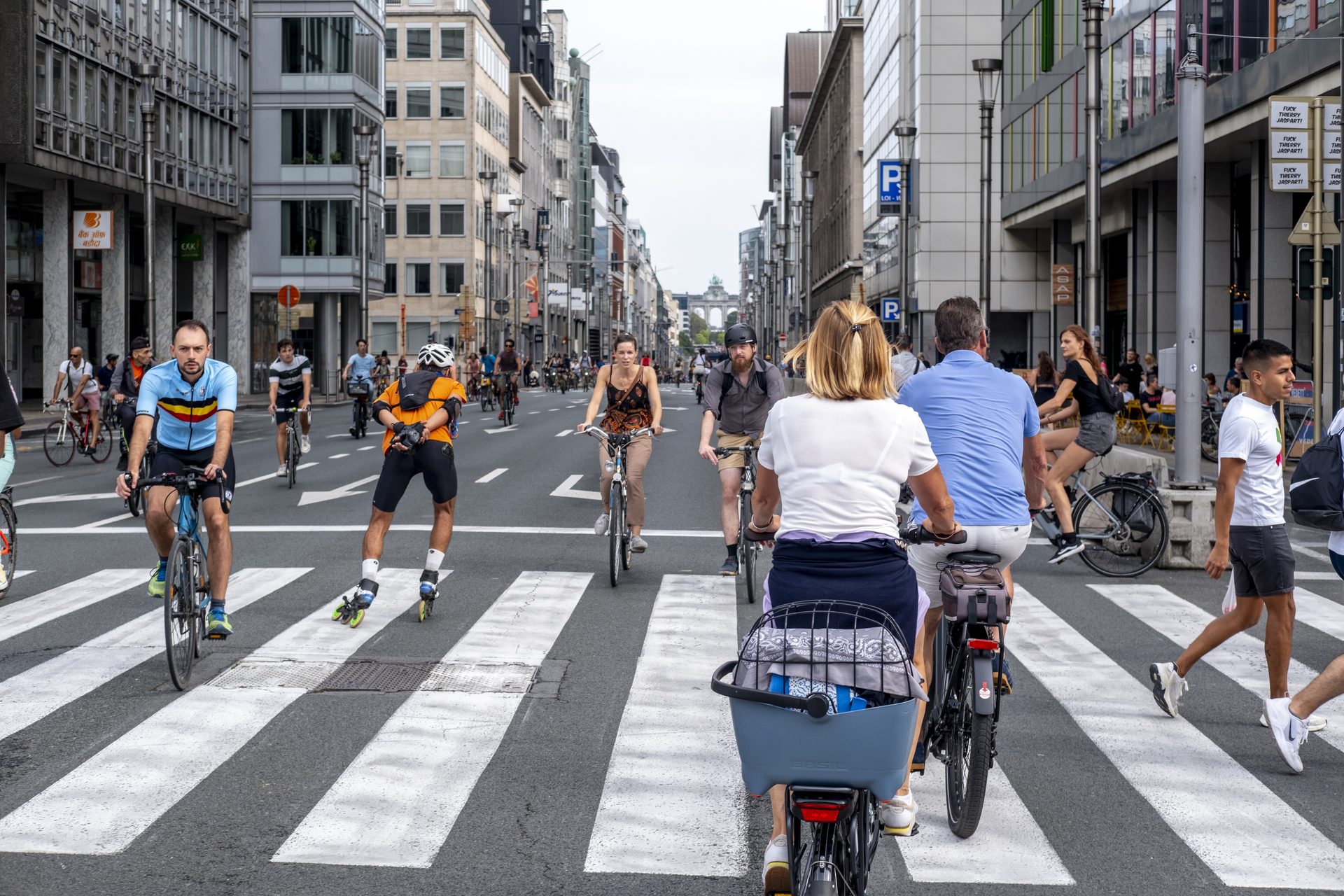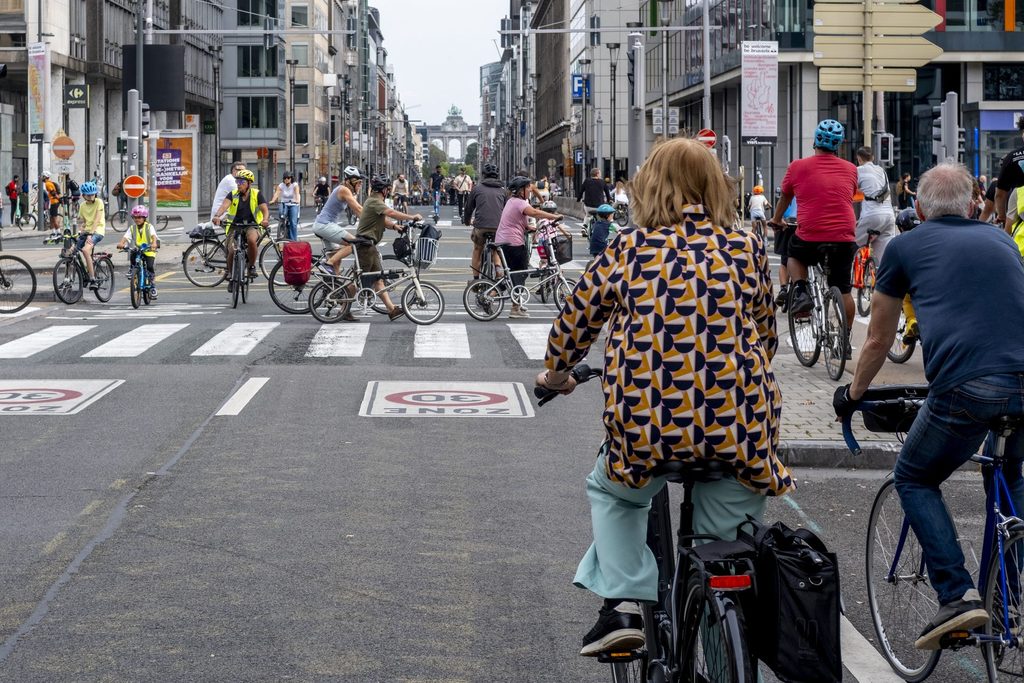Car-Free Sundays make Brussels a safer and more enjoyable city, but they also significantly contribute to reducing noise and air pollution, figures from Brussels Environment show.
On Sunday 17 September, Brussels once again became the largest car-free zone in Europe. More than one million people took to the streets on their bicycles, tricycles, e-scooters, rollerblades or on foot to discover the capital in a whole new way. Aside from some exceptions, cars were banned from the entire region.
"Streets and terraces full of people, independent children on bicycles, happy people: the social and economic added value of this car-free day was once again very clear," Brussels Minister for Mobility Elke Van den Brandt said. But Car-Free Sunday had another positive impact on the capital this year. The event also saw both air quality and noise levels improve, Brussels Environment found.
"Fewer cars means less pollution. Unsurprisingly, on Car-Free Sunday, Brussels took a deep breath: air and noise pollution fell drastically," Alain Maron, Brussels' Environment Minister, told The Brussels Times.
Better results on busier roads
Significant reductions in concentrations of several pollutants were recorded on Sunday.
Specifically, levels of nitrogen monoxide (NO), coming from car emissions, decreased by between 48% to 95% in urban environments with strong or very strong road traffic. Compared to an average weekday, this drop was as great as between 66% to 98%.
Levels of nitrogen dioxide (NO2), caused by fuel used in cars, dropped by between 44% to 77% compared to an average Sunday, and by between 60% to 86% when comparing the levels to those recorded on an average weekday.

Credit: Belga / Hatim Kaghat
Finally, black carbon levels dropped by 58% and 66% from gas and diesel engines, respectively.
The capital's most heavily used traffic axes were most strongly affected, according to Brussels Environment. At the Boulevard du Régent monitoring station, for example, NO and NO2 concentrations fell by 95% and 77% respectively compared to an average Sunday. Compared to an average weekday, levels decreased by 98% and 86%.
"Car-Free Sunday is the perfect opportunity to underline the importance of car absence. According to the latest European Environment Agency report, exposure to PM 2.5, NO2 (nitrogen dioxide) and O3 (ozone) alone caused 5,330 premature deaths in Belgium by 2020. This is therefore a public health issue," the agency noted.
"From 2019 until 2022, the annual concentration reduced by about 10% per year on average. So there is a positive trend, but still room for improvement."
Peace and quiet
In terms of noise pollution, a strong decrease in background noise levels was measured at the various monitoring stations. Brussels Environment found that there were strong decreases compared to the previous Sunday: just over 20dB at the measuring stations near the E40 motorway in Woluwe-Saint-Lambert. "We are talking about a 99% reduction in acoustic pressure," the agency noted.
At other measuring stations, such as on Chaussée de Wavre in Auderghem, the decreases were also quite pronounced (3.5 and 8 dB(A)) for the measuring stations at Waversesteenweg in Auderghem and Avenue Houba de Strooper in Brussels, the background noise dropped by between 50% to 84%.
Related News
- Car-free Sunday in Brussels: 'a great success' for Mobility Minister
- 'Most beautiful Brussels': Car-Free Sunday in pictures
Continued efforts
With results like this, who wouldn't want more Car-Free Sundays in Brussels? A survey published by the Clean Cities campaign last summer showed that the majority of the region's residents are in favour of increasing the number of days that cars make way for vulnerable road users. 58% are even in favour of one car-free day per week.
This question was raised by Van den Brandt, who is pushing for the event to take place multiple times a year: "I would like to propose a car-free Sunday every month. I have already suggested this to the mayors, starting with a second one during the Iris festival in May, but unfortunately I have not yet managed to convince them. We will try again next year," she said.
Maron stressed The Brussels-Capital Region is still working to make the air cleaner every day. "That is why we are speeding up the renovation of buildings, encouraging more sustainable mobility and running numerous awareness-raising campaigns. These measures are crucial if we are to make structural improvements and protect our children's health," he concluded.

